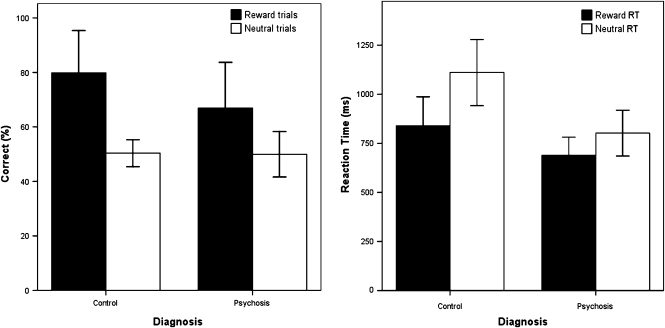Fig. 4.
Behavioral Results for Reward Learning. Left panel shows that although control subjects made more correct choices than patients, this difference was not statistically significant. Right panel shows an adaptive reinforcement-related speeding effect in control subjects (faster responses on reward trials) and a significant attenuation of this effect in patients. Moreover, patients were significantly faster than control subjects on the irrelevant, neutral condition. Error bars represent 95% confidence intervals.

